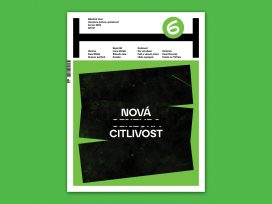Macha, Skacel, and miracles
A poet is an event in language: a miracle. Ivan Wernisch (a contemporary Czech poet – transl. note) – as he has told me himself – is convinced that “poems come into being where an image turns into a word, near something that may be called word-images, a short way from continuous human speech. The first word (sound?), a few first words (sounds?), force an opening through which – from where? – all the rest comes. An opening, which is passable for a while only, a very short while, for a few intakes of breath only. And so, as the beginning appeared, the end will appear too. Longer poems are always montages of smaller forms created at once.”
I have recalled these words on account of Karel Hynek Macha, as it will be 170 years since his death on Monday, 6 November. It seems to me that it worked only slightly differently in the case of romanticists, who roamed the countryside in search of images and let themselves be inspired by ruins of castles: they did not hunt for them inside but outside themselves, this was possibly the only difference. But also in Macha’s case poems were born where an image is moulded into a word, on the doorstep where images become solid words (somewhere behind the sight, therefore a miracle – in Czech “miracle” is homonymous with “behind the sight’ – transl. note) while his larger works were pieced together through a compositional technique. This is to be seen in his prose Marinka from 1834, which resembles a composition of an opera: it starts with an overture followed by two acts separated by intermezzos and eventually ends in a versed finale. His masterpiece May is built on a comparable pattern featuring four parts and two intermezzos. Macha became an event in language mainly because he also perceived the Czech language as music and he arranged it in a new way in terms of sound: he discovered unthought-of possibilities of meaning, he made it sing and that is why all poetic generations since the end of the nineteenth century have referred to him.
When he published May at his expense a few months before his death, critics fell on him and described the poem as trash, or slag “which, thrown out of an extinct volcano, fell among blossoms”. He died in Litomerice, seen off by a handful on his last journey.
It was in 1846, ten years after Macha’s death, that his brother Michal decided to sell his brother’s literary estate in order to get rid of debts after his attempt to publish Macha’s collected works as an edition in numbers had failed. The manuscripts were accepted in pledge by Earl Villani, who became the owner of the copyright as well. The original manuscript of May was bought by Jan Krousky of Katusice, where it stayed for decades. It was as late as in the summer of 1916 when it was discovered by the principal of a grammar school, J. Safranek.
The first group purposely associated with Macha were young poets of the so-called “May circle” in 1861, who paid a tribute to his memory at the cemetery in Litomerice and had a new tombstone carved out. To commemorate the eightieth anniversary of his departure in 1916, which also meant eighty years since the first edition of May, the work was published as a facsimile of the manuscript for the first time. Macha is, according to Ivan Wernisch, unsurpassable as a model.
An event in language is not only brought about by an author’s keener perception of the musical aspect of language but also by a different way of working with it: by bringing together words of opposing meanings; in other words, by employing an oxymoron. This is characteristic for another poet whose anniversary this year features the number seven: on Tuesday, 7 November, seventeen years will have passed since the death of Jan Skacel, whose poetic landscape is composed of word-images, as Ivan Wernisch describes them, without any “slightly different”. Skacel’s images are original, they come out of the mythicism of folklore and break down accustomed logic, causality as well as conventions. Skacel’s “stars smell fine like they did last year … / like roses, like bells …”; “death like a night, / the black one, / with beautiful buttocks”.
Even though an event in language is indubitable in Skacel’s case and even though he was born 112 years later, he also tasted misery in Moravia, and he would be kicked out all his life: first by Germans into Austria, where he worked as a labourer on building sites, then he was hired at Rovnost [a newspaper – transl. note] after a short spell of study, but he was fired again in 1952 and became a maintenance man and the same pattern repeated in 1970 when Host do domu [a literary magazine – transl. note] was banned and he found himself jobless, with a publishing ban imposed on his books. He could occasionally earn some extra money, for instance by writing verses for fronts of arched portals of wine cellars.
Jan Skacel died before the ultimate ban was lifted: he mostly published in “samizdat” or in bibliophiles’ small editions and children’s books. It was not until the 1980s that he was gradually taken at mercy. A dangerous question, to which we should seek an answer, goes: Why do we appreciate miracles so late?
Published 17 November 2006
Original in Czech
First published by Host 9/2006 (Czech version)
Contributed by Host © Karel Hvizd'ala/Host Eurozine
PDF/PRINTNewsletter
Subscribe to know what’s worth thinking about.



